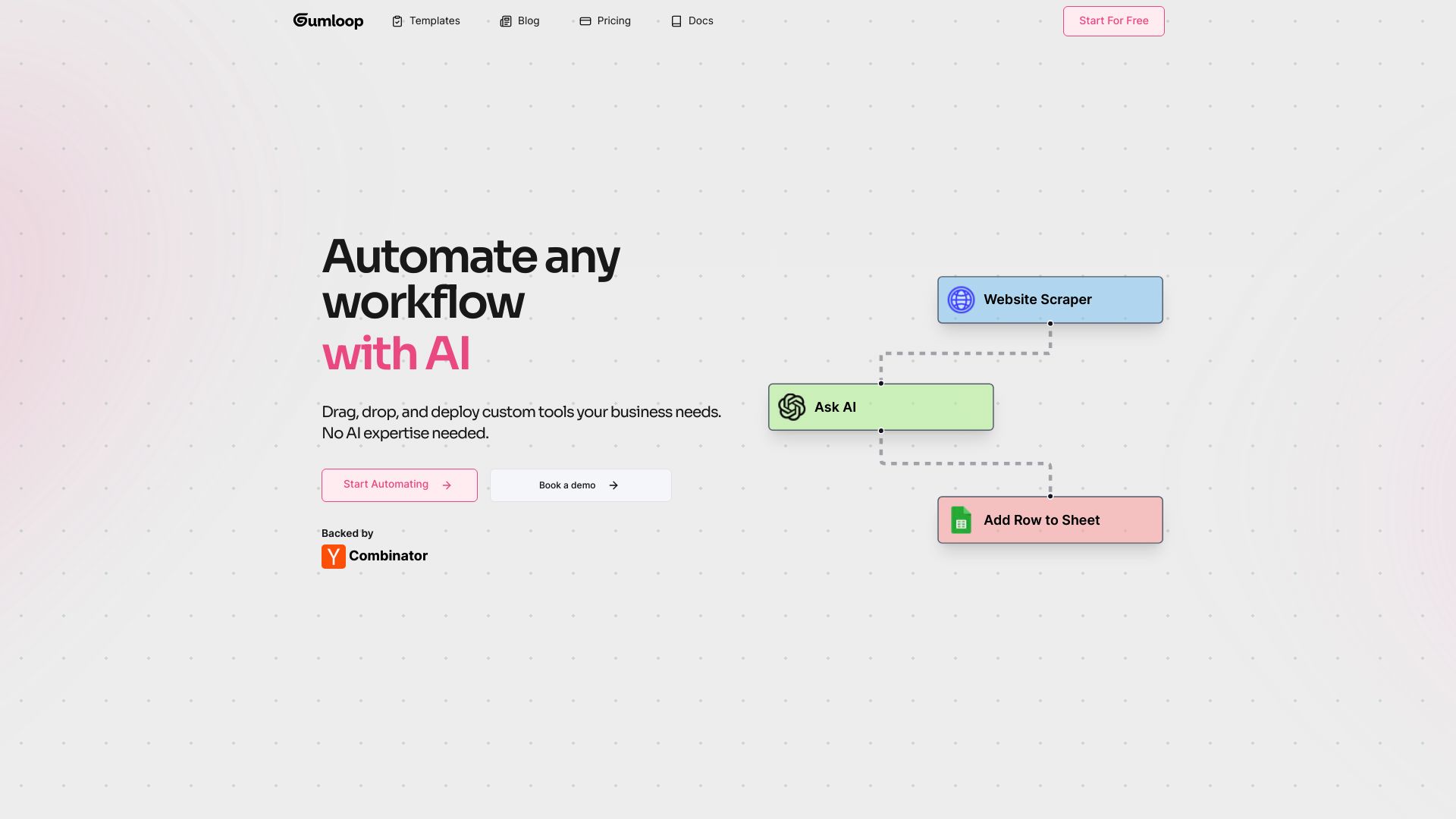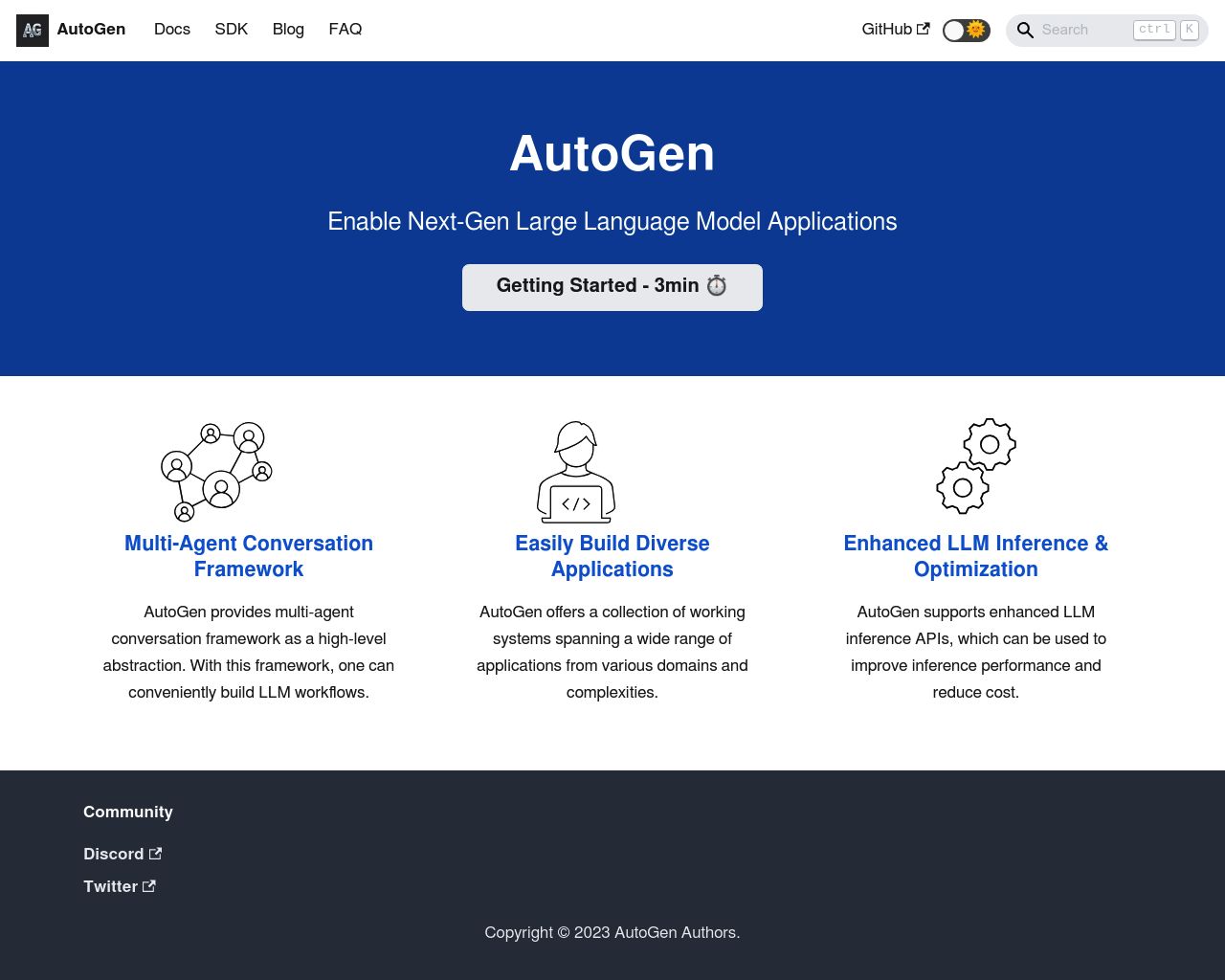AgentHub vs. AutoGen: Feature and Flexibility Comparison
The AI landscape is constantly changing, offering powerful tools for businesses and developers to harness this transformative technology. This comparison review explores AgentHub, a no-code platform designed for AI automation, and AutoGen, Microsoft’s open-source framework for building LLM applications. We’ll examine their key features, strengths, and limitations to help you make an informed decision.
Whether you’re a developer seeking advanced customization or a business user looking for accessible AI solutions, this analysis between AgentHub vs. AutoGen will guide you through the capabilities of these platforms. We’ll also introduce SmythOS, a comprehensive alternative that combines user-friendly interfaces with advanced features, addressing the gaps left by both AgentHub and AutoGen. By the end of this review, you’ll have a clear understanding of how these tools stack up and which might best suit your AI development needs.
AgentHub Overview
AgentHub is a no-code platform designed to simplify AI automation for businesses. It provides a visual builder that enables users to create customized AI-powered workflows without coding expertise.


AgentHub offers a range of features to streamline AI agent development and deployment. The platform’s drag-and-drop interface allows users to design complex AI models easily. It includes pre-built templates for specific tasks like customer service chatbots and content writing, reducing the time and knowledge required to implement AI solutions.
The platform supports both development and production environments, enabling users to test and refine their AI agents before deployment.
AgentHub emphasizes collaboration, allowing multiple agents to work together on complex tasks. The platform includes features for human-AI interaction, facilitating smooth communication between users and AI agents. For analytics and improvement, AgentHub provides audit logs and monitoring tools to track agent activities and performance.
While AgentHub offers a comprehensive set of features, it’s worth noting that some advanced capabilities like constrained alignment and IP control are not explicitly mentioned in the platform’s offerings. Users with specific security or compliance requirements may need to explore these aspects further.
AutoGen Overview
AutoGen is an open-source framework developed by Microsoft for building Large Language Model (LLM) applications using multi-agent conversations. It enables developers to create, customize, and deploy AI agents that can interact with each other, LLMs, tools, and humans to solve complex tasks.


AutoGen’s core feature is its ability to facilitate multi-agent conversations. These agents can work autonomously or with human feedback, making the framework adaptable for various use cases. It maximizes the performance of LLMs like ChatGPT and GPT-4 by offering enhanced inference capabilities, including tuning, caching, error handling, and templating.
AutoGen has demonstrated effectiveness in a wide range of applications, from automated task solving and code generation to continual learning and complex problem-solving in group chats.
For developers, AutoGen offers useful debugging tools, including logging functionalities for API calls, which is essential for diagnosing and optimizing LLM-based systems. It also includes EcoOptiGen, a cost-effective technique for tuning large language models, highlighting its focus on enhancing the efficiency of LLMs. While AutoGen offers many advanced features, it may require a steeper learning curve for non-technical users compared to some other AI agent builders.
Feature Comparison
AgentHub and AutoGen offer distinct approaches to AI agent development, each with its own strengths and limitations. AgentHub provides a user-friendly no-code platform with a visual builder, making it accessible to users without extensive technical expertise. Its pre-built templates for specific tasks like customer service chatbots and content writing allow for quick implementation of AI solutions. AgentHub also supports both development and production environments, enabling users to test and refine their AI agents before deployment.
AutoGen’s framework is particularly effective for applications requiring complex problem-solving and code generation.
While both platforms support autonomous agents and multi-agent collaboration, there are notable differences in their core components and security features. AgentHub emphasizes ease of use with its drag-and-drop interface and pre-optimized agents, whereas AutoGen provides more advanced tools for tuning, caching, and error handling of LLMs. In terms of security, neither platform explicitly mentions features for constrained alignment or IP control, which are important considerations for enterprise-level deployments.
| AgentHub | AutoGen | SmythOS | |
|---|---|---|---|
| CORE FEATURES | |||
| Hosted Agents (Dev, Production) | ✅ | ❌ | ✅ |
| Environments (Dev, Production) | ✅ | ❌ | ✅ |
| Visual Builder | ✅ | ❌ | ✅ |
| No-Code Options | ✅ | ❌ | ✅ |
| Explainability & Transparency | ✅ | ❌ | ✅ |
| Multimodal | ❌ | ✅ | ✅ |
| Work as Team | ✅ | ❌ | ✅ |
| SECURITY | |||
| Constrained Alignment | ❌ | ❌ | ✅ |
| Data Encryption | ❌ | ❌ | ✅ |
| OAuth | ❌ | ❌ | ✅ |
| IP Control | ❌ | ❌ | ✅ |
| COMPONENTS | |||
| Huggingface AIs | ❌ | ❌ | ✅ |
| Zapier APIs | ❌ | ❌ | ✅ |
| All other APIs, RPA | ✅ | ❌ | ✅ |
| Classifiers | ❌ | ❌ | ✅ |
| Data Lakes | ❌ | ❌ | ✅ |
| DEPLOYMENT OPTIONS (EMBODIMENTS) | |||
| Deploy as API | ✅ | ❌ | ✅ |
| Deploy as Webhook | ✅ | ❌ | ✅ |
| Staging Domains | ❌ | ❌ | ✅ |
| Production Domains | ❌ | ❌ | ✅ |
| API Authentication (OAuth + Key) | ❌ | ❌ | ✅ |
| Deploy as Site Chat | ❌ | ❌ | ✅ |
| Deploy as Scheduled Agent | ✅ | ❌ | ✅ |
| Deploy as GPT | ❌ | ❌ | ✅ |
| Scalability | ✅ | ❌ | ✅ |
| DATA LAKE SUPPORT | |||
| Hosted Vector Database | ❌ | ❌ | ✅ |
| Sitemap Crawler | ❌ | ❌ | ✅ |
| YouTube Transcript Crawler | ❌ | ❌ | ✅ |
| URL Crawler | ✅ | ❌ | ✅ |
| PDF Support | ❌ | ❌ | ✅ |
| Word File Support | ❌ | ❌ | ✅ |
| TXT File Support | ❌ | ❌ | ✅ |
Best Alternative to AgentHub and AutoGen
SmythOS emerges as the superior alternative to AgentHub and AutoGen, offering a comprehensive solution that combines ease of use with an extensive feature set. Our platform stands out by providing a visual builder and no-code options, making AI agent development accessible to users of all skill levels. Unlike AgentHub’s limited focus or AutoGen’s developer-centric approach, SmythOS supports a wide range of use cases, from simple chatbots to complex multi-agent systems.
Security is another area where SmythOS shines. We provide robust features like constrained alignment, data encryption, OAuth, and IP control, which are notably absent in both AgentHub and AutoGen.
We address significant feature gaps present in both AgentHub and AutoGen. While AgentHub lacks multimodal capabilities and AutoGen misses out on a user-friendly interface, SmythOS excels in both areas. Our platform supports various data types and offers an intuitive drag-and-drop interface, allowing for rapid development and deployment of sophisticated AI agents.
Furthermore, SmythOS offers unparalleled flexibility in deployment options. Whether you need to deploy your AI agents as APIs, webhooks, site chats, or even as GPTs, our platform supports it all. This versatility, combined with our scalable infrastructure, ensures that SmythOS can adapt to your growing needs, making it the most comprehensive and future-proof solution in the AI agent builder market.
Conclusion
AgentHub and AutoGen each offer unique approaches to AI agent development, catering to different user needs and technical requirements. AgentHub’s no-code platform with its visual builder and pre-built templates makes AI automation accessible to users without extensive coding expertise. AutoGen, as an open-source framework, provides developers with powerful tools for creating sophisticated multi-agent systems and optimizing LLM performance.
However, SmythOS emerges as the superior alternative, combining the best of both worlds while addressing their limitations. Our platform offers an intuitive drag-and-drop interface similar to AgentHub, making it accessible to non-technical users, while also providing the advanced customization and multi-agent capabilities that AutoGen users appreciate. We support a wide range of AI models, including those from OpenAI, Anthropic, and Hugging Face, giving users unparalleled flexibility in their AI implementations.
SmythOS stands out with its comprehensive feature set, including robust security measures, versatile deployment options, and extensive integration capabilities. Our platform supports deployment as APIs, webhooks, site chats, scheduled agents, and even as GPTs, ensuring that your AI solutions can be seamlessly integrated into any existing workflow. Additionally, our data lake support, including a hosted vector database and various file format compatibilities, enables efficient handling of large-scale data operations.
For those looking to harness the full potential of AI in their operations, we invite you to explore our agent templates and see how SmythOS can transform your AI development process. Ready to get started? Create a free SmythOS account today and join the AI revolution that’s 99% faster and more accessible than ever before.
Last updated:
Disclaimer: The information presented in this article is for general informational purposes only and is provided as is. While we strive to keep the content up-to-date and accurate, we make no representations or warranties of any kind, express or implied, about the completeness, accuracy, reliability, suitability, or availability of the information contained in this article.
Any reliance you place on such information is strictly at your own risk. We reserve the right to make additions, deletions, or modifications to the contents of this article at any time without prior notice.
In no event will we be liable for any loss or damage including without limitation, indirect or consequential loss or damage, or any loss or damage whatsoever arising from loss of data, profits, or any other loss not specified herein arising out of, or in connection with, the use of this article.
Despite our best efforts, this article may contain oversights, errors, or omissions. If you notice any inaccuracies or have concerns about the content, please report them through our content feedback form. Your input helps us maintain the quality and reliability of our information.
